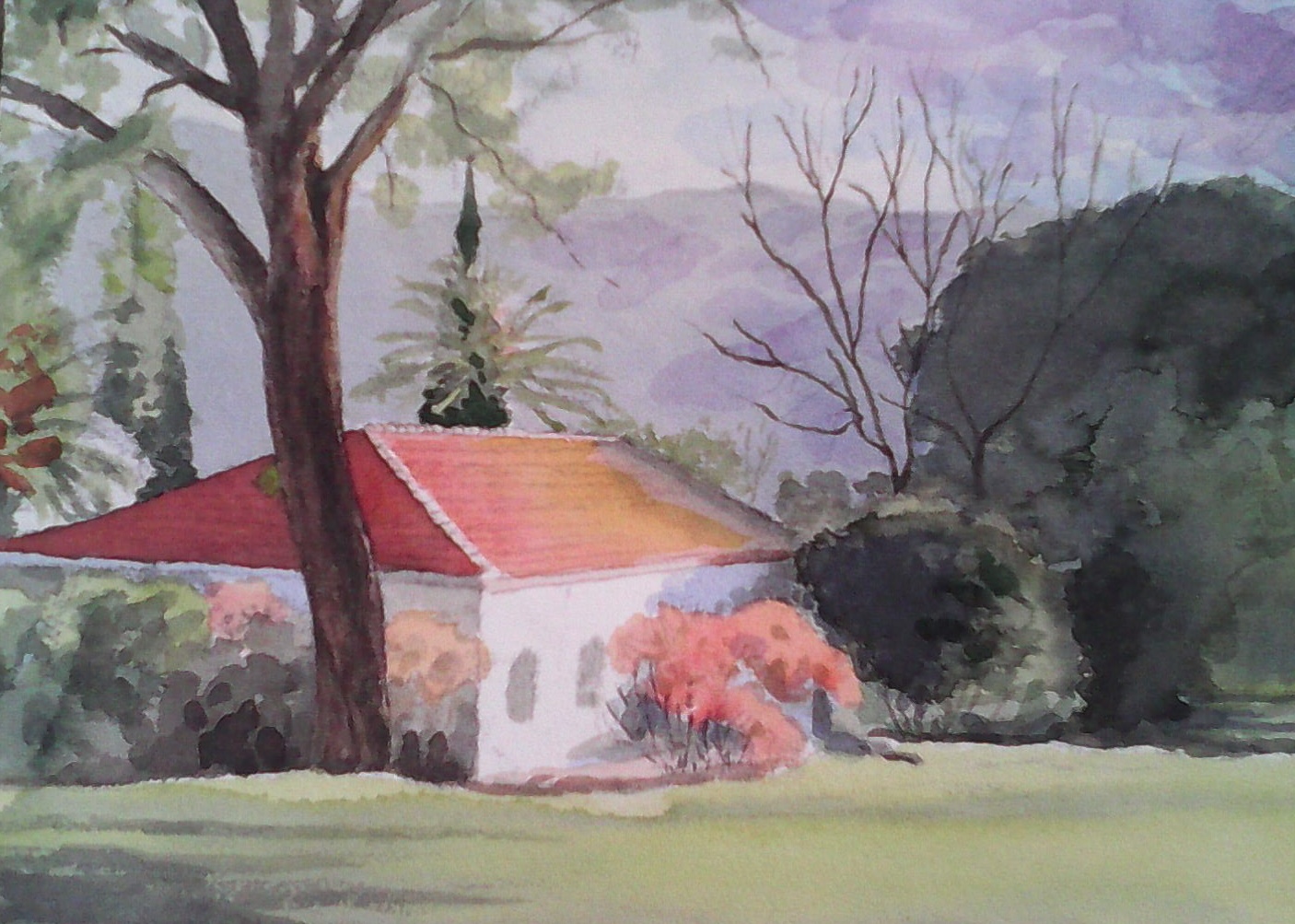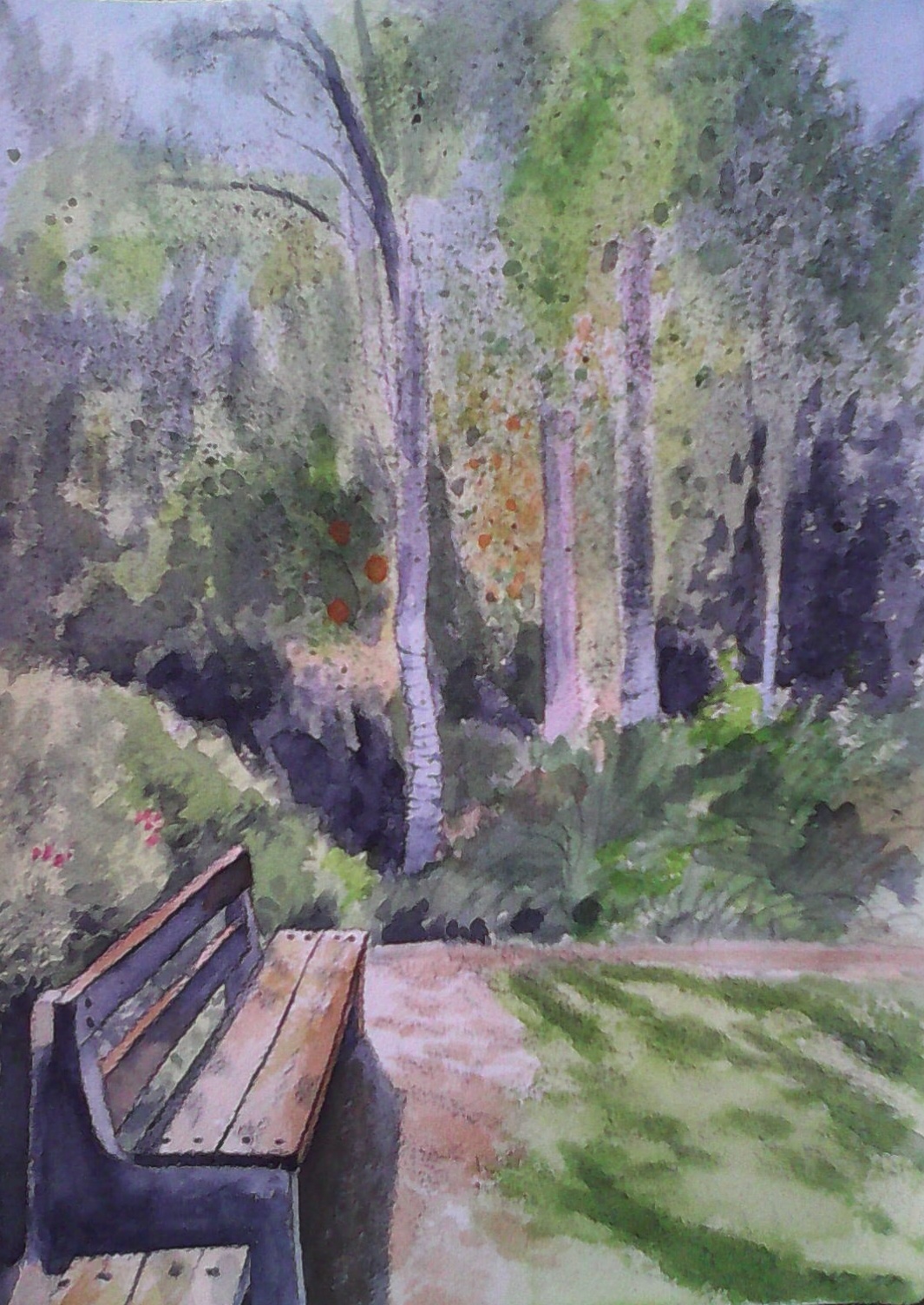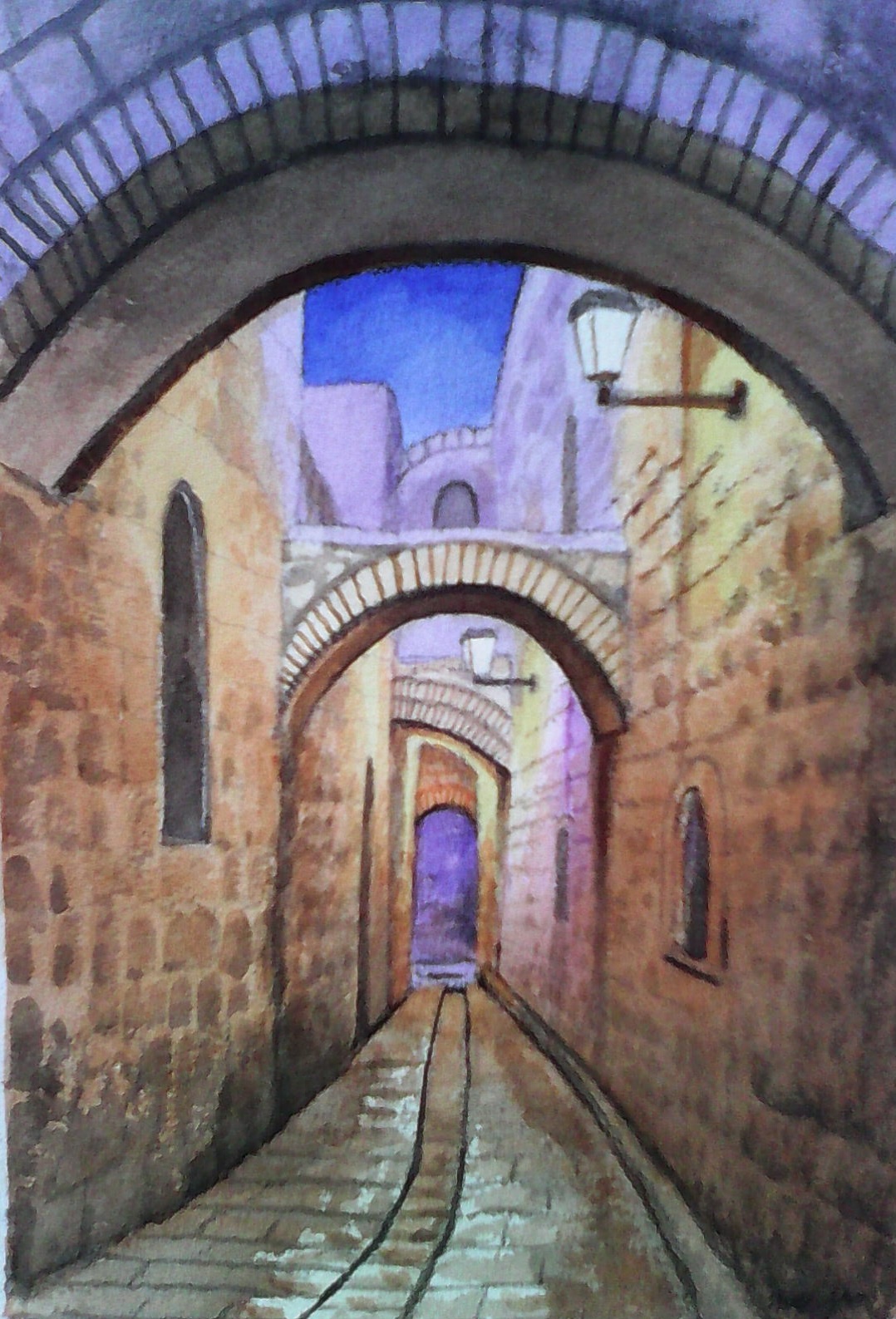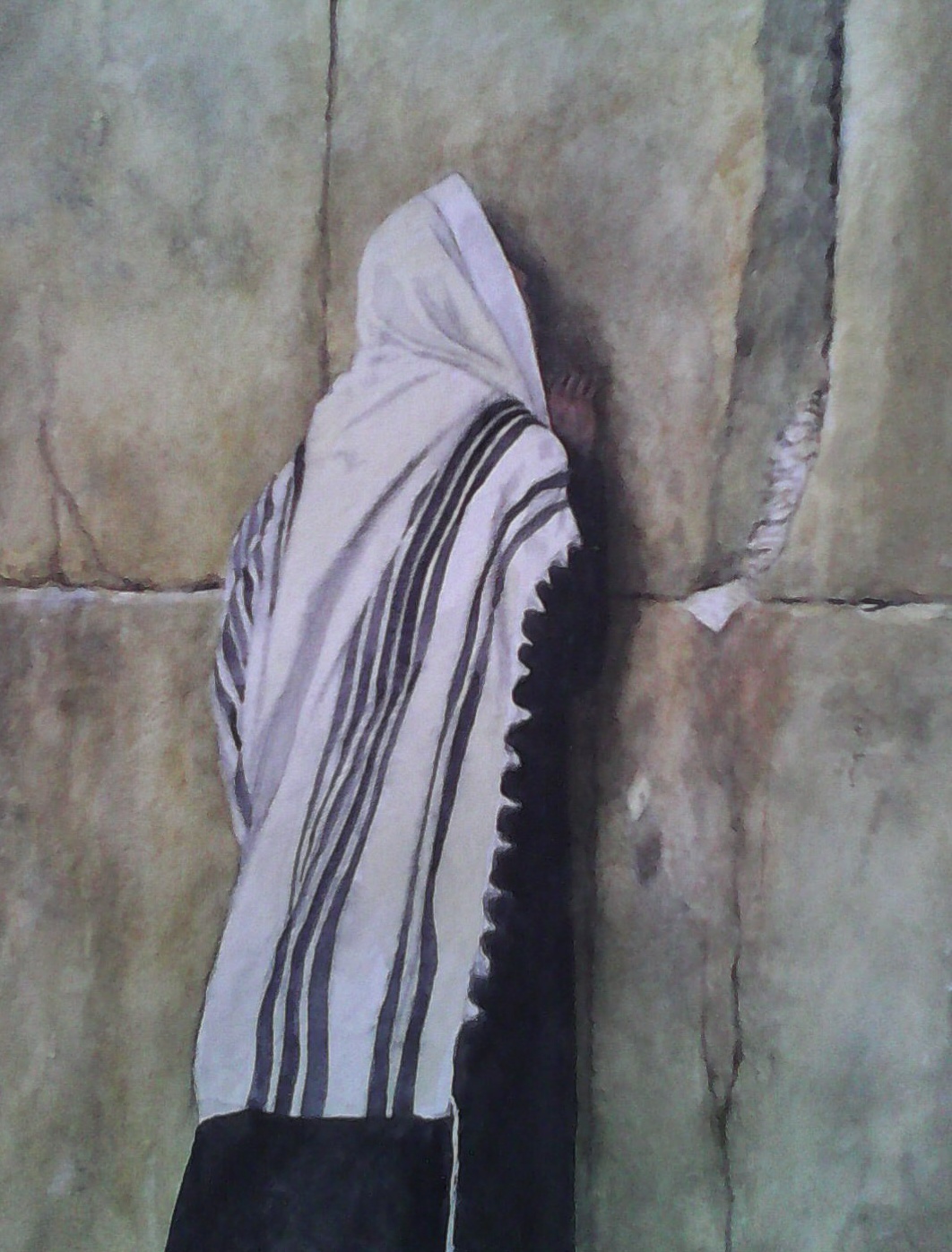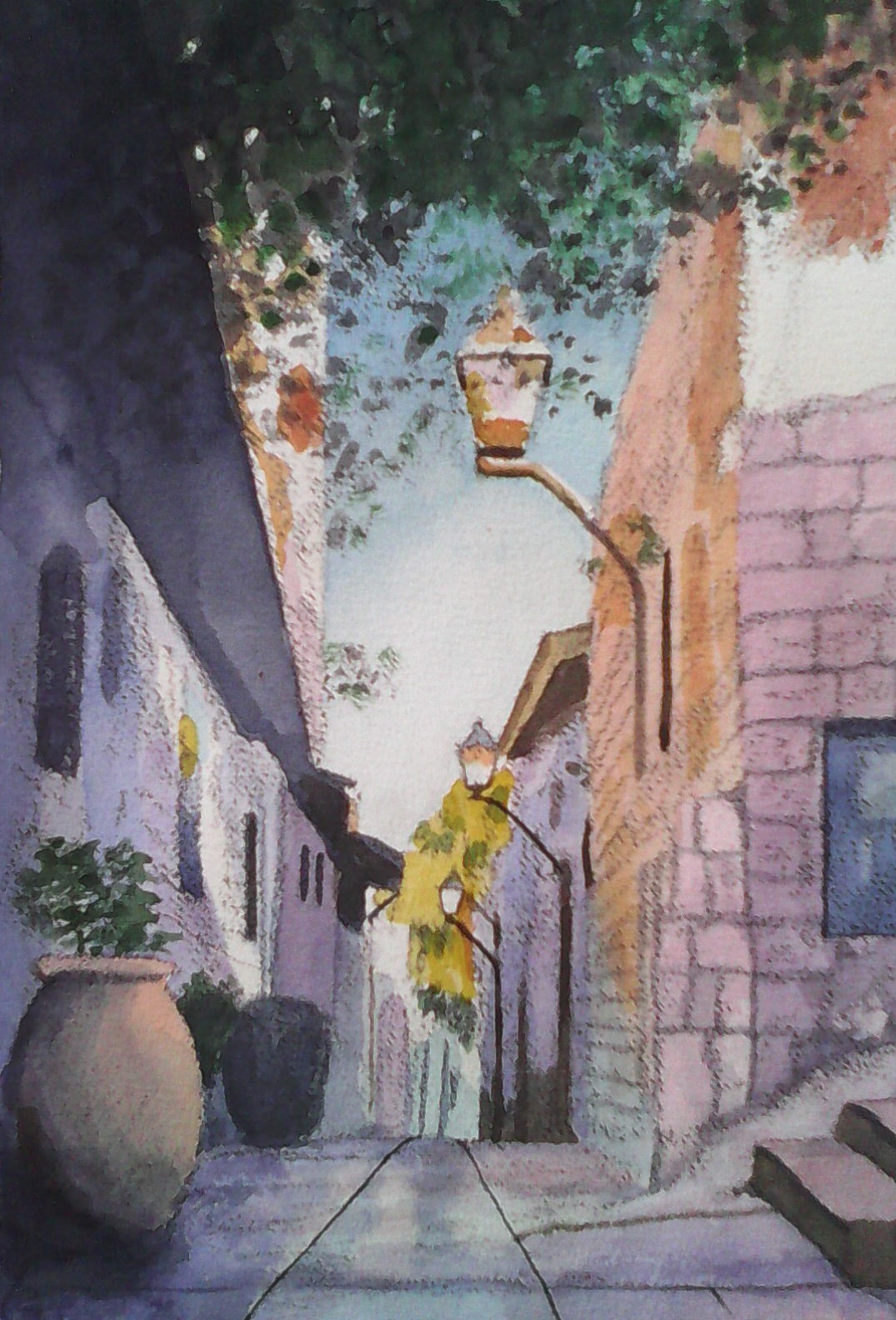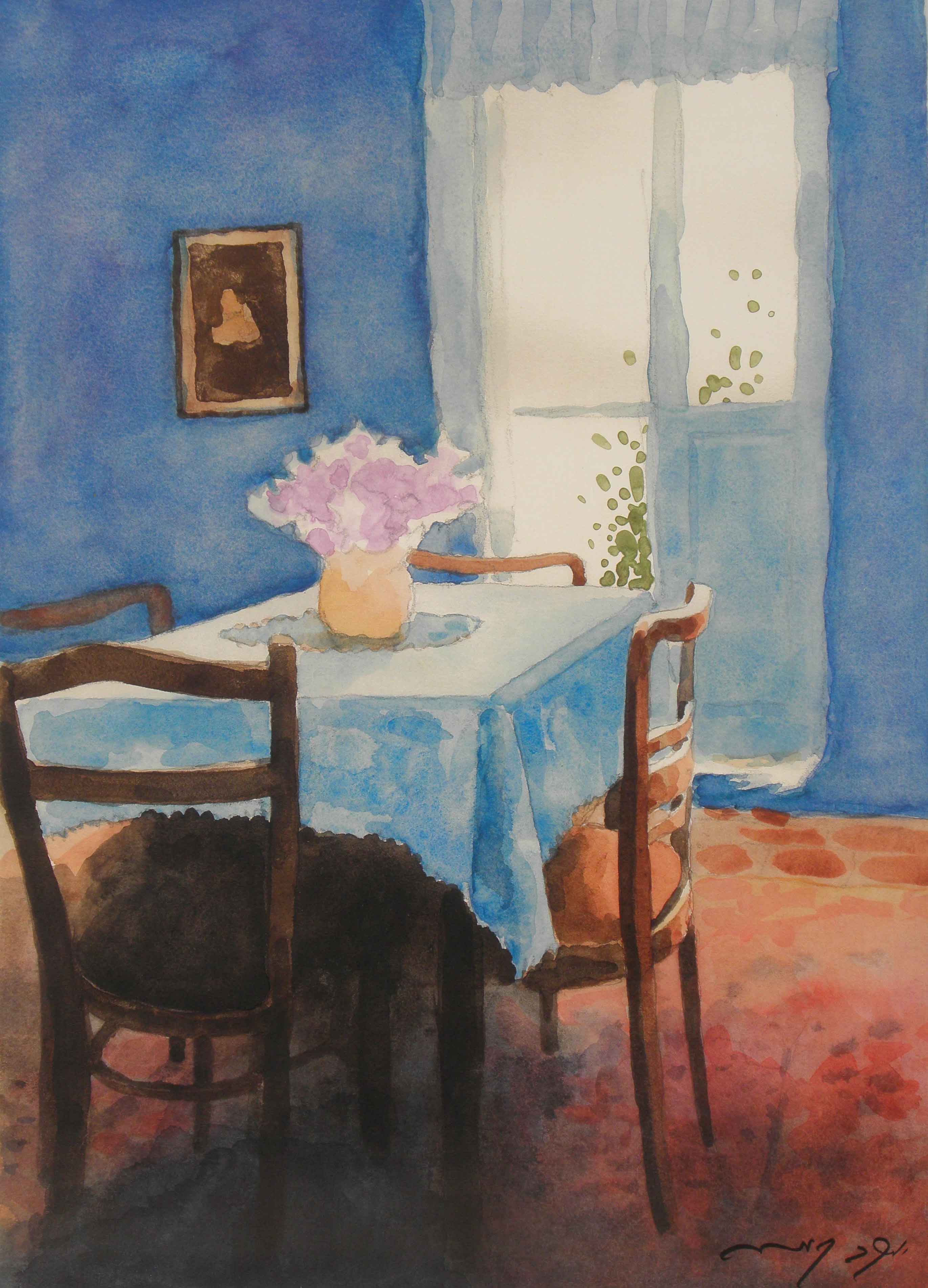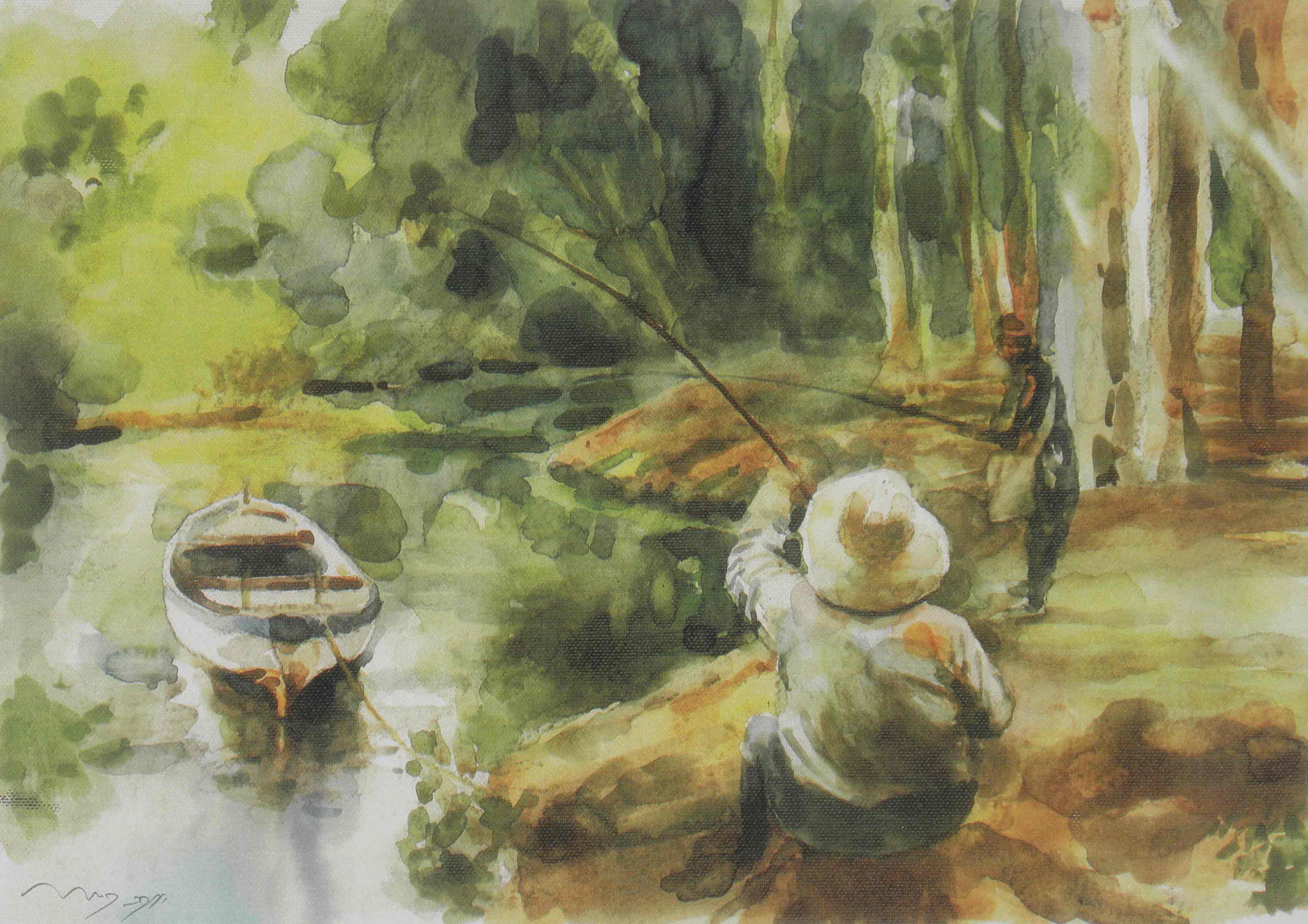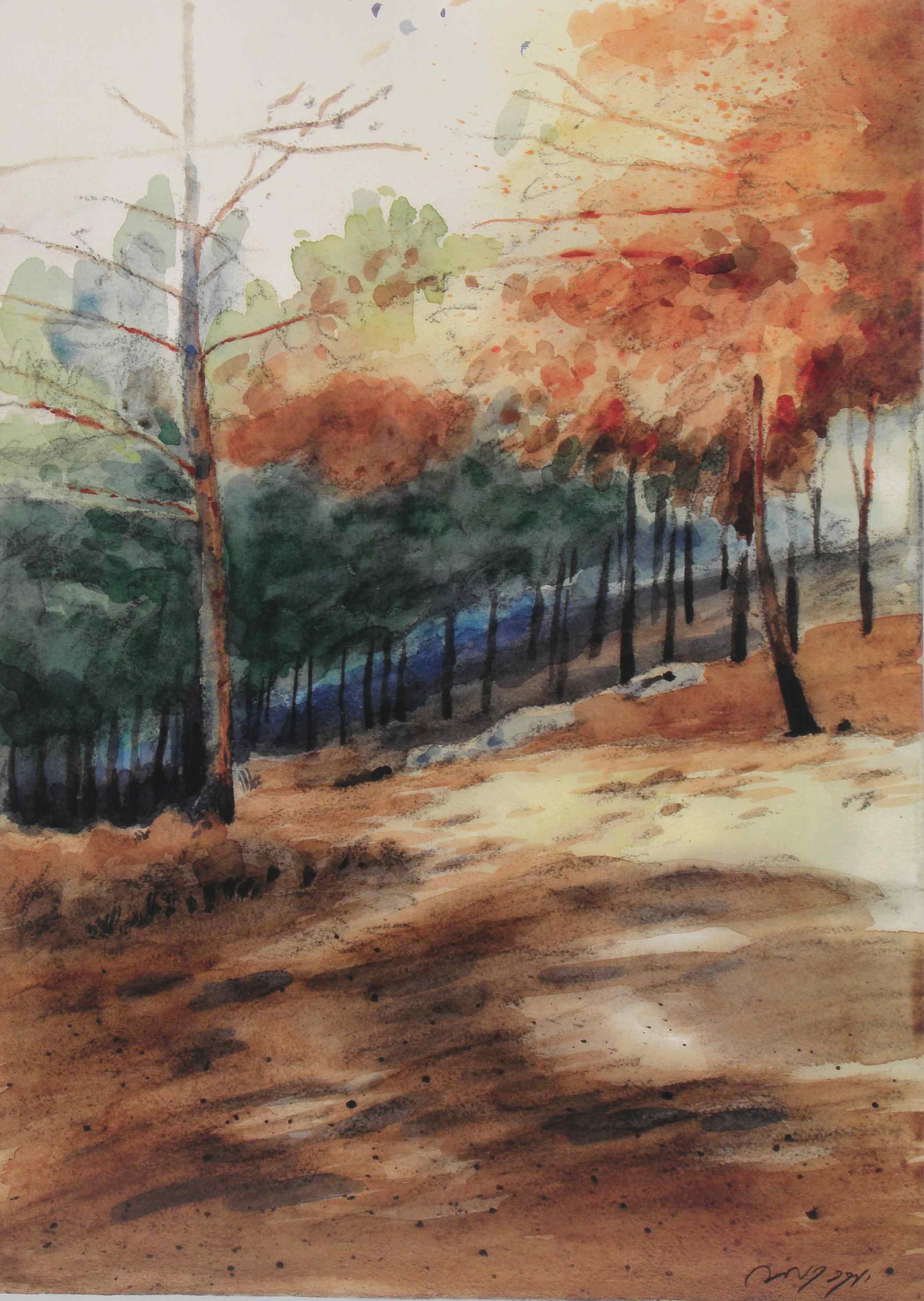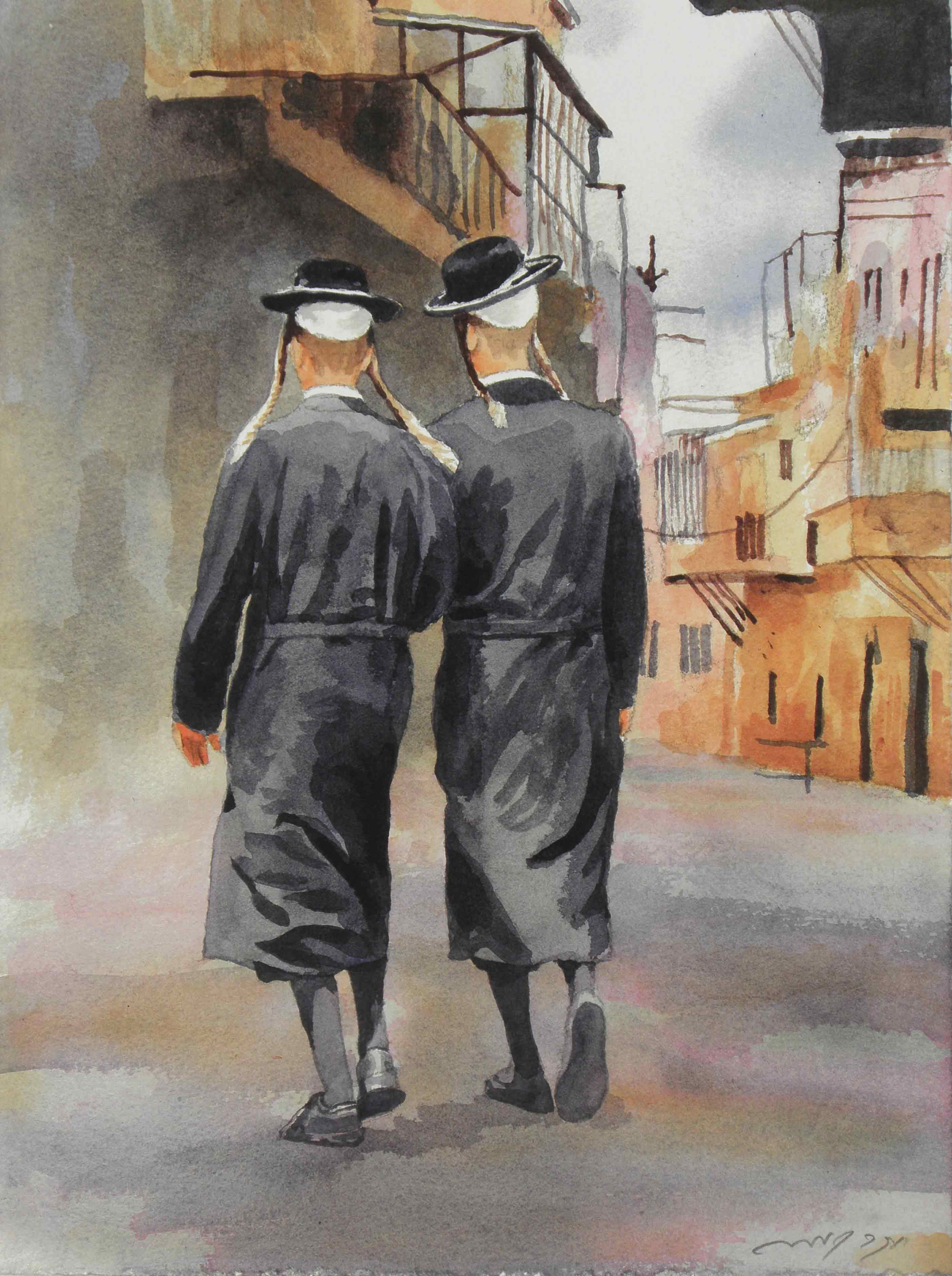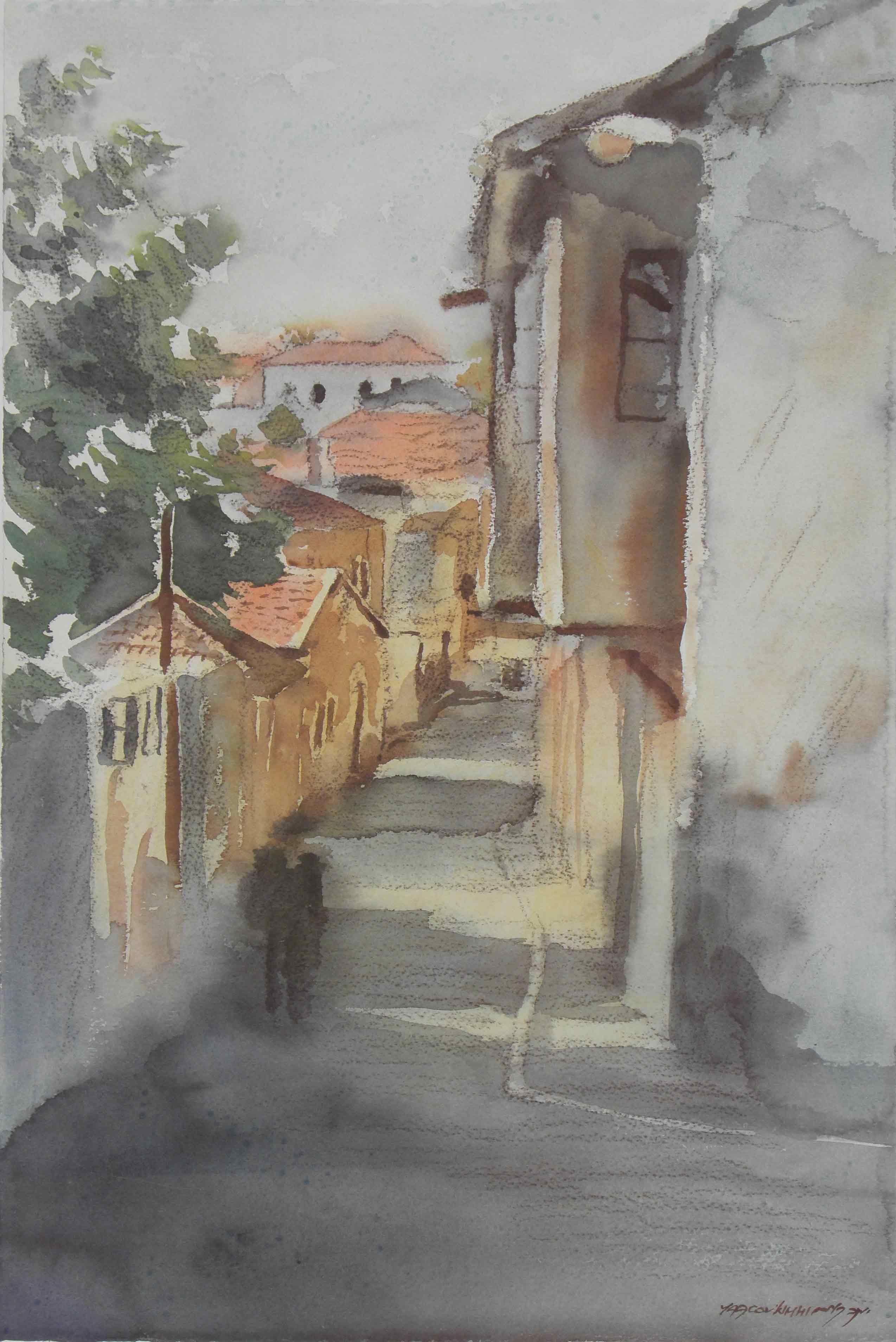Artist Yaakov Kimchi: "I Give Thanks for Every Fraction of a Second I Was Blessed to Return to Faith"
The artist Yaakov Kimchi returned to faith ten years after his dear friend Yoni Gerstein started 'losing his way' (as he puts it). Recently, he decided to write stories to touch the hearts of others. Hence, the books 'Surprise', 'Shabbat', 'Religious Coercion', and more were born. And what will you say to the fact that he's dyslexic?
 Yaakov Kimchi (Photo: Manory46)
Yaakov Kimchi (Photo: Manory46)Crash!!! -
The front windshield shattered into pieces. Yariv managed to see in the darkness the trajectory of the stone hurled toward his car's window. He gripped the steering wheel firmly, and without losing his composure, pressed the brake pedal. The car stopped, fortunately, on the side of the road. A new Mazda. He had paid for it with his hard-earned money. He also heard the wild shout "Shabbat!!!" Disgusting! What nerve.
Everything happened so fast. He found himself exiting the vehicle into the cool Jerusalem night, spotting the retreating figure in a long black coat. By the roadside were similar fleeing figures, in coats and black hats.

Yariv quickly pursued the escapee until he caught up with him in the alley he sought to escape to. Yariv grabbed his hand, twisted it back, and through controlled self-restraint, said, "Take me to your Rebbe immediately".
This opening, from the story 'Shabbat' by author and painter Yaakov Kimchi, is quite unconventional. Admit it, there aren't many who can stop reading now and not continue.
But yes, that's precisely the secret of his unique stories, which he published twenty years after returning to faith, with one goal – to draw more Jewish hearts closer to their Father in heaven. "Someone once said about my books that whoever sees them - either throws them away or eventually returns to faith," he says with a smile, "and I hope there will be fewer who throw them away, or rather - more who get inspired by them".
"I Returned to Faith Thanks to Yoni Gerstein"
Yaakov Kimchi was born into a Tel Aviv family and had a completely secular childhood. "Even in my childhood, I struggled with reading and later was diagnosed with dyslexia," he notes. "It doesn't mean I couldn't read, and even more so, if you give a hundred people a page of text they've never read, I would make the fewest mistakes because my brain scans the letters in the deepest and most thorough way, but afterward, I would need to rest for a long time because the concentration that reading demands of me is enormous.
"When I finished primary school," he continues, "all the children were enrolled in high schools, and I wanted to be a mechanic because it seemed to me a very masculine profession with a good income. But my father insisted on enrolling me in an art school, and so I became a painter".
At 17, he began publishing paintings made by his brush, along with writing stories and publishing children's books, some of which were broadcast on the radio. At the same time, he published his stories and illustrations in well-known children's magazines from that period, such as 'Pilun', 'Davar Acher', and others that children of the 80s and 90s surely remember well.
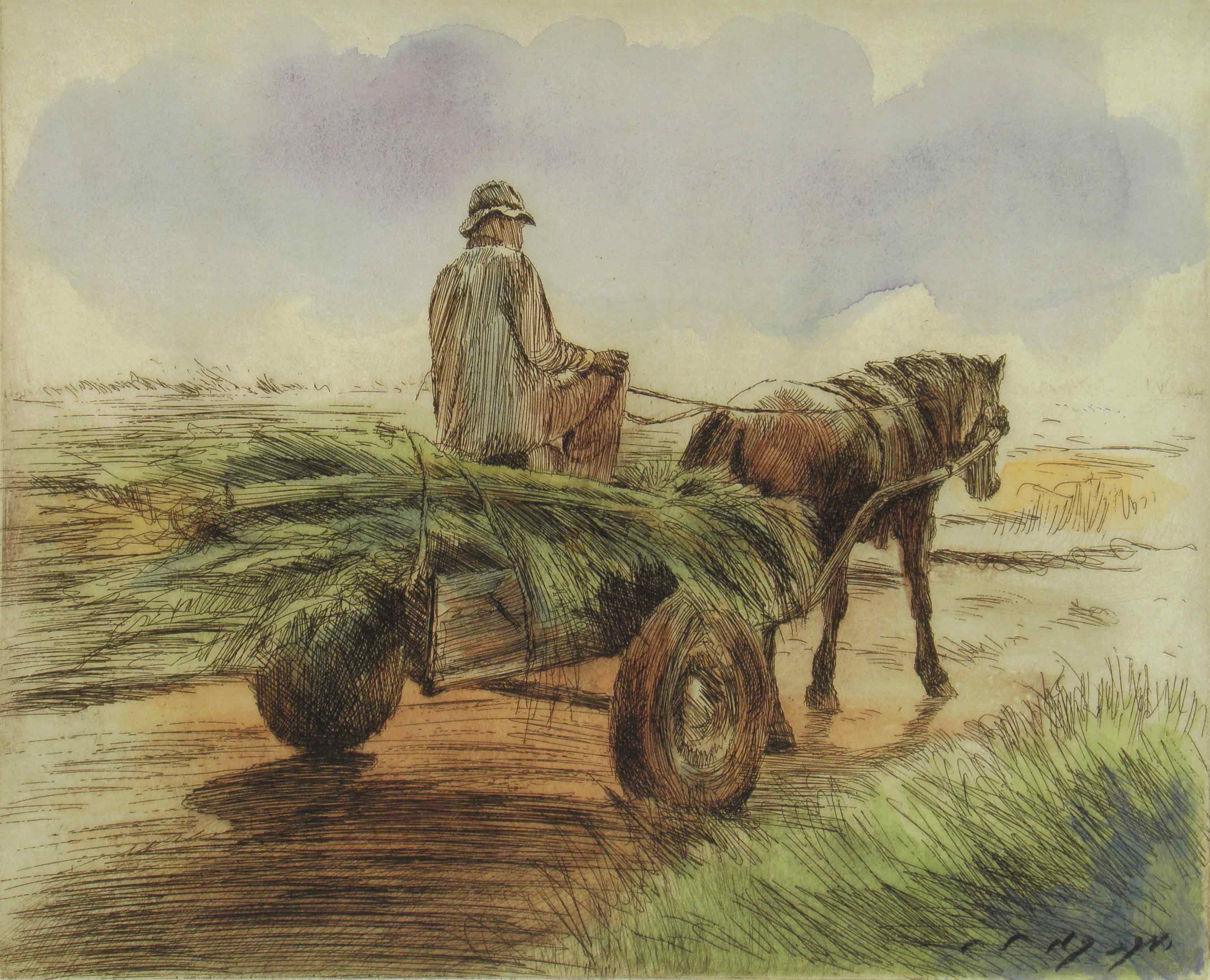
"While studying at the Bezalel Academy," he continues, "I studied with Dudu Gerstein, the twin brother of painter Yoni Gerstein. Dudu studied with me in the same class. I often visited him, and at some stage, it seemed to me that his brother Yoni began 'losing his way'. That was at the beginning of his return to faith. One day, I arrived at Yoni's studio, he made us coffee, and then he took a yarmulke from the drawer and placed it on my head. He said to me: 'Yankel, I'll say a blessing over the coffee, and you'll answer Amen, what do you care?' I really didn't care, so I answered him. And thus he began to instill religious concepts in my mind. It took time, a lot of time, because I wasn't naive. For ten years I pondered, inquired, and researched until ultimately I gave in, and today I give thanks for every fraction of a second I was blessed to return to faith and choose true life".
Not to Write, But Only to Learn
For twenty years after Kimchi returned to faith, his literary career stopped, and he didn't write at all. "My feeling was that now was the time to study Torah, and I was truly blessed to study at the Neve Amal Yeshiva in Bnei Brak, and I was filled with spirituality. I didn't need to write," he explains.
But about seven years ago, things changed. "I think it started with a kind of burst of affection for our distant brothers. I simply felt in my heart how much a shame it was that they are sitting there far away and don't know what they are missing. So I sat down and began writing my first story called 'Surprise'. The story deals with a dialogue between two friends, after which another friend joins them and tells that he returned to faith and what caused him to do so. "I received very warm feedback," Kimchi says, "and I remember being most strengthened by someone saying to me – 'if once it took a seminar of five days to return to faith, today just one booklet can already serve as a seminar for us'. Of course, all the things that appear in the story are not mine but things I took from familiar ideas I’ve heard on various occasions in my life. But what I mainly tried to convey in the story is that I also came from that place, I also know the streets of Tel Aviv, but things became clear to me that it's simply a shame to miss".
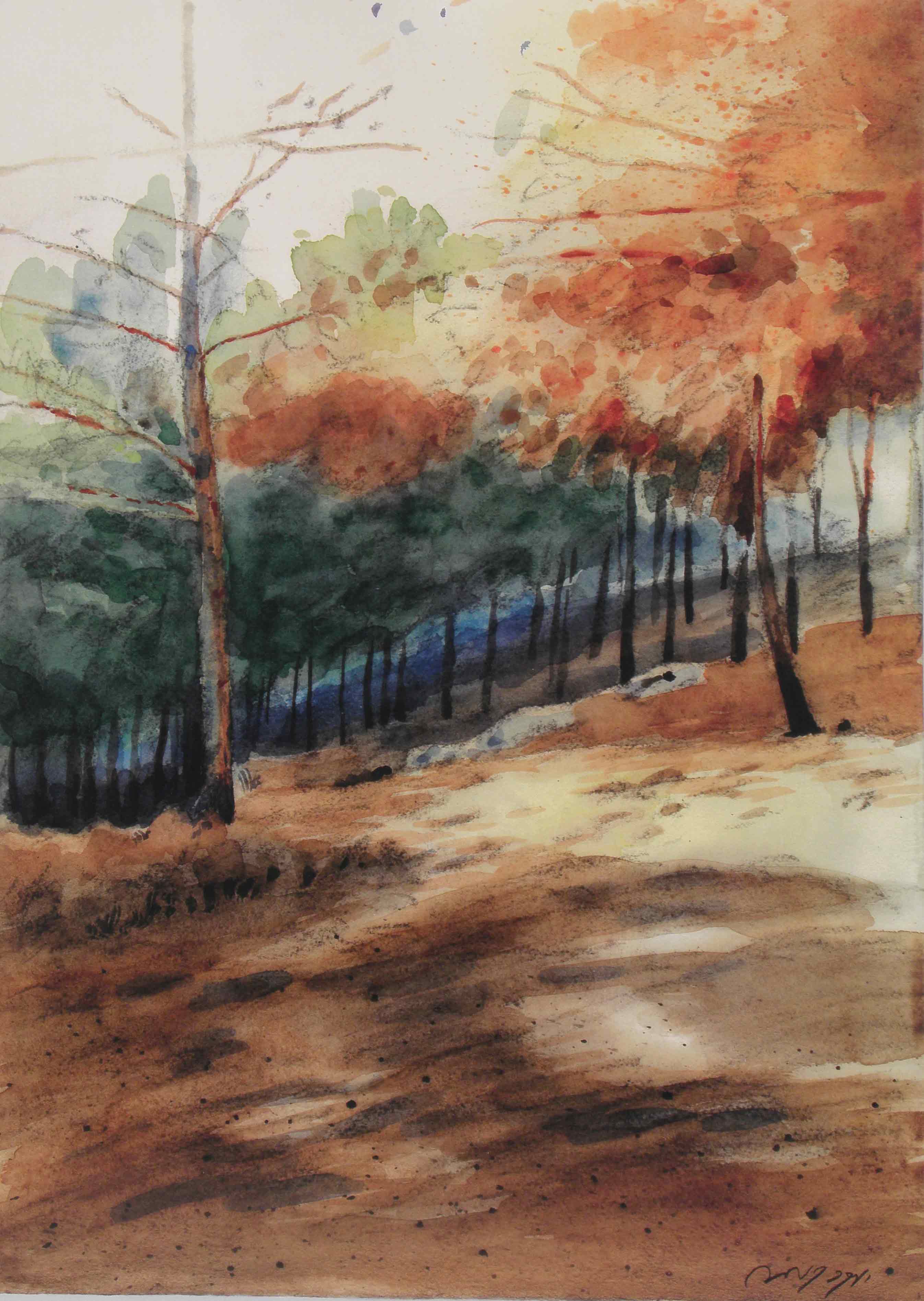
And the story, Kimchi says, he wrote with trembling and tremendous effort. "At that time, exactly, my father passed away, and my aunt discovered he had a share in some place. We divided the amount received among all the siblings, and each got two thousand shekels. With that amount, I financed the publication of the first book. The edition included 1000 copies in what is called a pocketbook format, with a soft cover".
The books, from the very beginning, were not intended for profit, but to Kimchi's surprise, all one thousand initial copies vanished immediately. "One of the books also reached Rabbi Yitzchak Zilberstein, the rabbi of Ramat Elchanan, and when I visited him, he told me he gave it to someone who ran a yeshiva for dropouts, and he read the story to the students from the first word to the last. It greatly encouraged me".
After the first edition ran out, Kimchi approached publisher Pinchas Reuven, who released another edition of 18 thousand copies, and all the books sold out. This already opened the door for him to continue writing other stories.
And here Kimchi reveals: "The truth is, due to my difficulty as a dyslexic, it’s not at all easy for me to write the stories. When I write, it requires tremendous effort. But my feeling was that I had messages I wanted to convey and was willing to put in the effort for it".
And he also adds: "After I published 'Surprise', I consulted with my teacher and rabbi, Rabbi Shlomo Kanievsky (son of Rabbi Chaim Kanievsky), and he told me: 'Write another one quickly, because here, among the ultra-Orthodox, everything goes in series'. I asked him: 'Why write another one?' And he responded: 'Maybe someone who won’t like the first, will like the second'. And he was so right. I've published 13 stories so far, and you can see how everyone likes a different story. Each story manages to strike a chord with a different person".

To explain what's in Kimchi's stories, you simply have to read them. Because all the stories are very captivating, they touch the heart and are written by a true artist. Mentioning their names alone arouses curiosity. And once you've read them - you are captivated. You can no longer put the booklet down.
"I have a strange hobby," Kimchi shares, "I like wandering the streets of Tel Aviv, whether on Shenkin or Dizengoff, or any other street, then I approach some young person with the most serious expression and hand them the book 'Surprise'. Usually, he looks at me and sees a devout Jew with a white beard, so he refuses with two hands and says: 'No, thank you'. Then I pull out my second book called 'No, Thank You' and offer it to him. In successful cases, my conversational partners laugh and say: 'Now give us both'. I make sure not to take money for them because the books are not for sale, but given for the sake of public benefit. Whoever wants to donate is welcome, but I'm careful not to profit from it even a shekel; everything is intended for the continuation of these things".
And where does your livelihood come from?
"From the paintings," Kimchi replies simply, "I hold exhibitions of my paintings in various places around the country and sell them at low prices. These include landscape pictures, the alleys of Safed or Jerusalem, fishermen paintings, etc. It's something I've been involved in even before I returned to faith and continue to this day. Painting Hashem's world, with all the amazing beauty it has".
